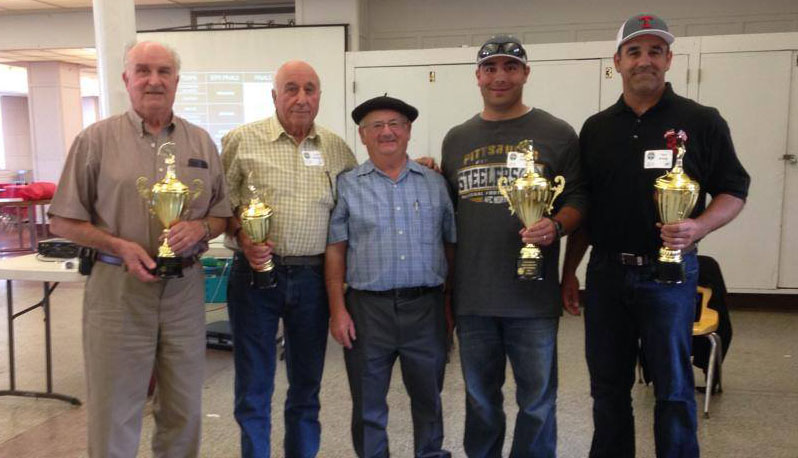Ander Egiluz Beramendi, San Francisco. Born in Uharte-Garazi (Lower Navarre), Pierro Etcharren moved to San Francisco, California in the 1960s. And since then, he’s gathered thousands of experiences, many of them connected to two particular fields: dance and mus. Today we´ll talk with him about mus as he is and has been for years the North American Basque Organizations Mus Chairperson.
It’s the first time Txoko Ona Basque Club, from Homedale, Idaho, holds the NABO Finals. Everything ready?
-Yes, and everything will be great because, since Tony and Darren (Uranga) won the competition last year, they have been working on it. It will be a very important event for Homedale, since many people will be going from all over the country, and that is a special thing.
That’s a good point; this is not good just for the club, but for the whole town.
-That’s right, it’s always a good thing for any town to have people arriving from other places. At the beginning it was not easy to find a place to celebrate the finals but, nowadays, everybody wants it, because it’s good for the town.
Four or eight Kings? Was it easy to make a decision?
-In many club picnics you can see six people playing mus together, and for that you need eight Kings. But, obviously, there are six players around the table. But here we play with four Kings, because that’s also the rule of the World Championship.
It is very common to see women playing mus in the old Basque farm houses. Nevertheless, in the championships they are usually a minority. Is that reality changing?
-Here, in San Francisco, women play mus a lot. In fact, Josephine Curutchet, a French woman who married the late Sebastian Curutchet (from Ezterenzubi) is the current winner. She’s very good.
Does she help young girls to start playing mus?
-Yes, she does encourage girls to start playing.
Would you say that youngsters from our communities like to play mus?
- I think so. And that’s, in part, because they’re taught at the Udalekus, which is very good. There are many kids, who are born here and are good. Mus is doing very good here. There also some young kids who are not Basque but like to play mus too.
NABO organizes a youth mus tournament. Blogger Anne Marie Chiramberro (HellaBasque) also holds an annual tournament.
- That's right. I know Anne Marie because her father came to the US from my village. It’s great what she’s doing with that tournament. But besides these tournaments, whenever there is a barbecue, people always play cards. And that’s something that happens in many clubs, not just here.
Are you happy with the current situation?
-Mus is alive in the US since the creation of NABO and the first World Championship was celebrated in one of our picnics, in 1979 [the first World Championships were held in France and Spain, but when Pierro brough it to the US he gave it the final push to internationalization]. There were seven nations competing, and nowadays there are fifteen or twenty. And that is something that appeals to the young. Seeing people from all around the world playing mus is something special.
Some years ago you became an aitatxi, with Joanna, Gexan, Peio… Are they following your steps?
-They like playing mus. We play at home. Last Sunday, for instance, I played with Gexan. They know how to play and they’re getting better at it. There is no age for mus. You need to know how to play and you need to practice. And they do it, it’s clear they will keep playing. They like it, like other kids do too.
* The next World Championship will be celebrated in Mar de Plata, Argentina. And this weekend’s winner will represent the US in that tournament.






 Send to a friend
Send to a friend Add comment
Add comment








